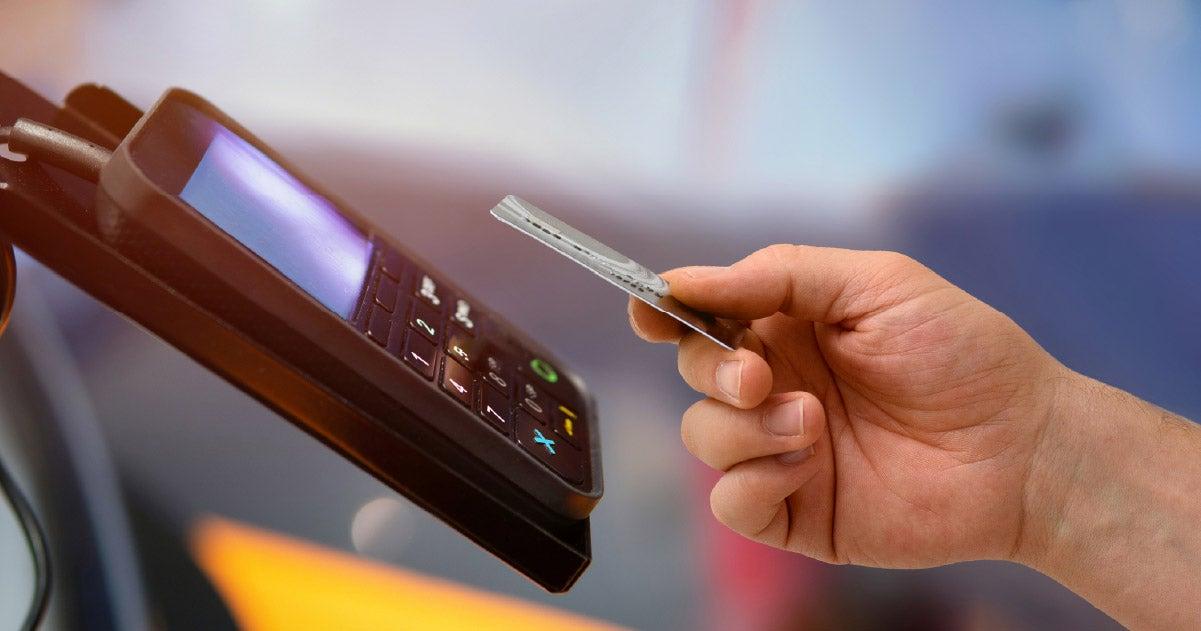
Related Topics
Are you looking for ways to manage your money better in retirement? Prepaid banking cards are a popular alternative to traditional bank or credit union accounts for older adults, offering enhanced security, convenience, and spending control. The FDIC reports that in 2021, nearly 7% of all U.S. households were using general-purpose, reloadable prepaid cards.1
However, there can be fees and downsides to using prepaid cards. Each card has different terms of use—so it’s important to do some research before deciding which option is right for you.
What is a prepaid banking card?
A prepaid banking card is a type of payment card preloaded with a specific amount of money. It can be used to make purchases or withdraw cash up to the available balance. This type of card works similarly to a debit card, but it’s not linked to a bank account. Once the funds on the card are used up, more money can be added, depending on the card's terms.
Prepaid cards are widely accepted at most places where debit or credit cards are used—such as retail stores, online shopping sites, and restaurants, as long as the card carries a network logo like Visa, Mastercard, or American Express.
Some prepaid cards can also be used at ATMs to withdraw cash, depending on the terms and conditions of the card. Note: Certain locations or services may have restrictions on prepaid card usage, so be sure to check with the merchant in advance.
What are the different types of prepaid banking cards?
There are many types of prepaid banking cards, including:
- Federal government-issued cards such as Direct Express®, developed exclusively for people who receive federal benefits (e.g., Social Security, Supplemental Security Income (SSI), veterans’ benefits)
- Electronic benefits transfer (EBT) cards, which are state-issued government benefits cards (e.g., for SNAP/food stamps, TANF)
- Commercial prepaid debit cards, which typically carry a network logo (e.g., Visa, MasterCard, American Express, or Discover) and look like a normal credit or debit card
- Gift cards from retail stores, which have a fixed amount and cannot be re-loaded
What are the benefits of using a prepaid banking card?
Prepaid cards offer several benefits for older adults compared to using traditional debit and credit cards or checks:
- Convenience: Prepaid cards are user-friendly and easy to carry with you in your wallet or purse. They can be used in person or online for everyday purchases like groceries, over-the-counter items, dining, and entertainment. You can also use certain prepaid cards to pay medical and utility bills.
- Accessibility: There is no credit check required to get a prepaid card, making them accessible to people who have a low credit score or limited credit history.
- Budget control: Prepaid cards limit your spending, since you can only spend up to the amount pre-loaded onto the card. This can help you avoid overspending and take greater control over your budget. It also eliminates the risk of overdraft fees or debt accumulation that can happen with traditional debit and credit cards.
- Security: Prepaid cards reduce the risk of fraud or identity theft, as they are not directly linked to your bank account. Many come with added security features, such as fraud protection and PIN codes.
Tips for using prepaid banking cards
In partnership with Bank of America, NCOA developed the following tips for using, managing, and protecting your government-issued and/or commercial prepaid debit cards.
How to manage your government benefits card
- Look closely at the fee summary. Be sure to use your card wisely and avoid fees whenever possible.
- Use an ATM in the Direct Express® card network. There are approximately 75,000 ATMs nationwide in the Direct Express card network. When you use these machines, you get one fee-free cash withdrawal each month.
- Make store payments with your Direct Express® card. Avoid ATM fees by paying for purchases in stores with your card.
- Get cash back for free in stores. When you make a purchase using your PIN number at grocery stores and many other places, you have the option to get cash back for free.
- Get cash from certain banks free of charge. Go to any bank or credit union that displays the MasterCard acceptance mark and get cash from a teller free of charge.
How to manage other prepaid cards
- Shop around. Explore all the different prepaid card options available to you as a retiree. Take the time to understand the fees and costs of each card—and don’t hesitate to comparison shop.
- Check the card agreement for fees. At some stores, paying with a prepaid debit card might provide the option to run the card as “credit” or “debit.” Some prepaid cards charge you a higher fee if you choose debit. Be sure to review the card agreement to understand all fees, as the money will come out of the prepaid card account either way.
- Contact the card provider right away if your card or PIN is lost or stolen. Your rights to recover money taken from your prepaid card account depend on the type of card, the contract, and how quickly you report the loss. Generally, payroll cards and government benefits cards are protected under the same rules that protect your bank debit card. The federal Direct Express® card provides similar protections by contract.
Network-branded (MasterCard or Visa) prepaid debit cards usually give some protection, but check the card provider’s website for specifics. If the card that was lost or stolen was a gift card for just one store or retail group, your ability to recover any money will depend on the retailer’s policies and on whether you registered the card. - Don’t use prepaid cards for gas, hotels, or rental cars. Some prepaid cards can incur an additional charge at a gas station, hotel, or rental car agency. This is because these transactions can take a few days to process. In the meantime, a temporary hold for a larger amount may be placed on your card (this ensures there is money to cover the full potential charge). Once the transaction is processed, the temporary hold is removed, and the held money returns to your card. Using a prepaid card to buy gas, hotel reservations, or rental cars may restrict access to your funds in addition to the purchase for several days.
- Don’t use gift cards for anything other than gifts. Gift cards appeal to scammers because most people can easily get them—but they come with fewer protections for the purchaser. What's more, scammers can typically spend gift card funds with minimal risk of getting caught. The basic rule of thumb to keep in mind is that gift cards are for gifts only; you should never use them to pay a bill or a fee. Get more tips on avoiding common scams.
Download our Savvy Saving Seniors® handbook to learn more about using prepaid cards to better manage your money.
Source
1. Federal Deposit Insurance Corporation (FDIC). 2021 FDIC National Survey of Unbanked and Underbanked Households. Found on the internet at https://www.fdic.gov/household-survey




